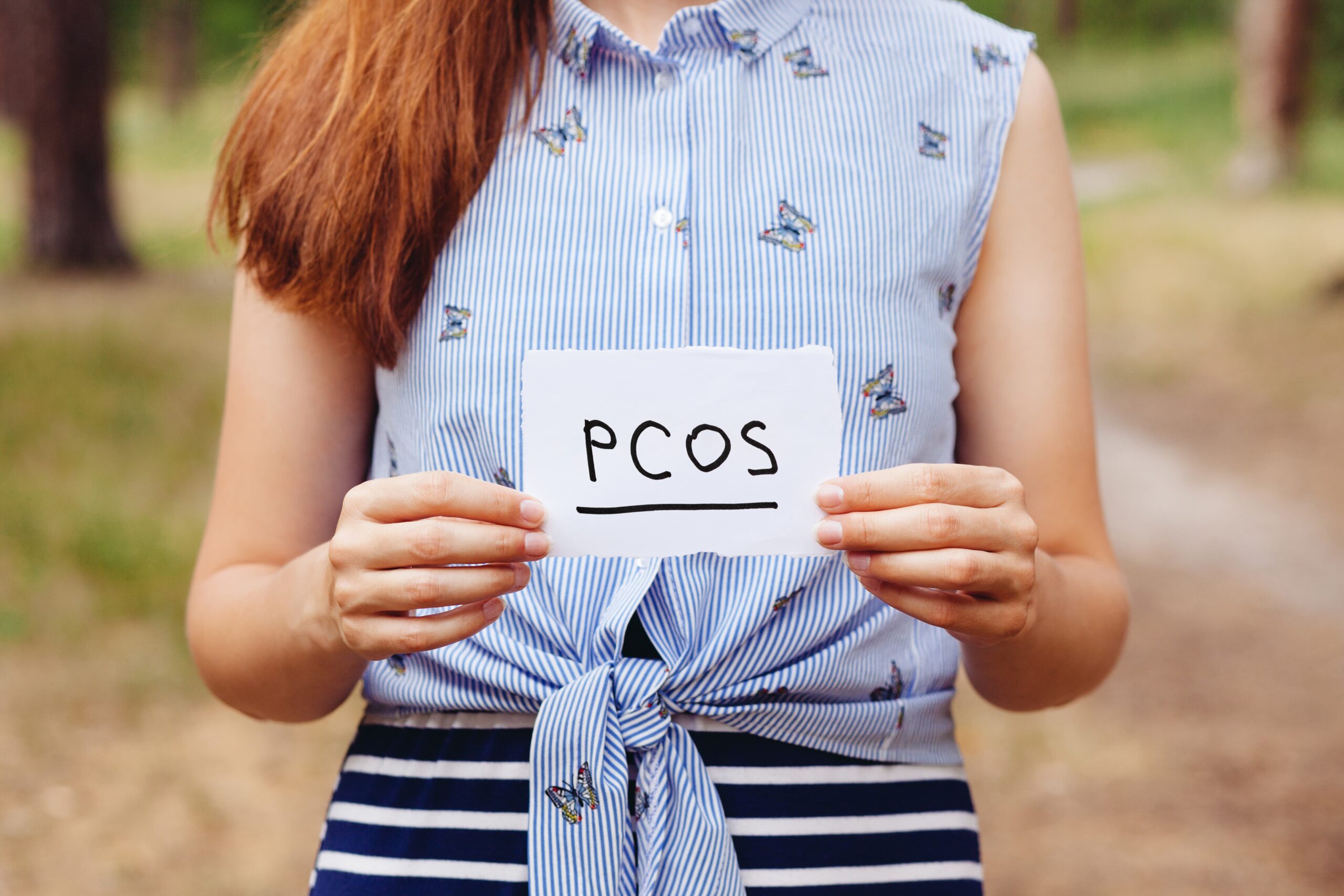As one of the most common causes of fertility issues in the UK, Polycystic Ovary Syndrome (PCOS) isn’t talked about enough. The condition affects up to 10% of women and yet many of us have never heard of it or know what symptoms to look out for.
Nuffield Health’s GP National Lead, Dr Unnati Desai, explains everything you need to know about what PCOS is, what the symptoms are, and how you can manage it.
What is PCOS?
PCOS is a multisystem condition affecting the ovaries, certain metabolic functions, or the skin, and affects women in their childbearing years.
The exact cause remains unclear, but it is a condition which is associated with increased risks of other health concerns developing in the women that are affected such as diabetes, stroke, fertility difficulty, sleep apnoea and cancer of the womb.
The actual prevalence of PCOS is not known, perhaps due to an under-recognition of the condition, but it is estimated that up to 10% of women in the UK have the condition.
It is a condition which is diagnosed following investigations and exclusion of other specific conditions. An accepted criterion requires the presence of at least two out of three of the following:
- Infrequent periods (less than 9 periods a year), or no periods
- High levels of androgens (testosterone) in blood test or symptoms that suggest higher androgen levels such as excess hair growth on the face or body, loss of hair from the scalp, acne
- Multiple cysts on the ovaries (more than 12 cysts on one ovary) on an ultrasound scan
Symptoms of PCOS often start in the years after puberty into the early 20s. However, women may not be diagnosed with the condition until they present to their doctor with menstrual irregularities, difficulty getting pregnant, acne or excessive hair growth or loss in the areas that men tend to be affected.
What are the symptoms of PCOS?
Many women with PCOS may have very mild symptoms, so much so that they don’t realise they have the condition until they present with difficulty conceiving.
However, there are still many women who do have symptoms. Those women will have some or all of the symptoms listed below, to different degrees of intensity, depending on the individual. These symptoms include:
- Irregular periods/no periods at all
- Difficulty getting pregnant
- Excessive hair growth (hirsutism) usually on the face, chest, back or buttocks
- Thinning hair and hair loss from the head
- Acne
- Dark skin patches
- Skin tags
Insulin resistance is a very common feature of PCOS and affects around 75% of all women with PCOS regardless of their weight, but it is an issue which is made worse by an increase in weight.
Insulin resistance means that the cells that use glucose as an energy source (muscle, fat and liver cells) do not respond to normal levels of insulin, so the body compensates by producing more insulin which helps the glucose enter the cells. Insulin resistance is a leading cause of developing pre-diabetes, diabetes in pregnancy or type-2 diabetes later in life.
In addition, higher levels of Insulin increase the production of androgens from the ovaries which can make the symptoms of PCOS worse.
How can you manage PCOS?
Unfortunately, there is no cure for PCOS, but there are ways to improve symptoms, increase the chances of getting pregnant and decrease your risk of other health concerns developing.
One of the most recommended routes to mitigate the effects of PCOS is living a healthy lifestyle. Maintaining a healthy weight, eating a balanced diet, not smoking, decreasing your alcohol intake and doing regular exercise will reduce your overall risk of the long-term health concerns associated with PCOS.
Losing as little as 1-2kg of excess body fat can help regulate your cycle, decrease insulin resistance thereby decreasing your insulin and androgen levels, and can improve your chances or getting pregnant.
There are some medications that can help manage the symptoms that occur with PCOS and will depend on whether you are trying to get pregnant or not.
If you are not trying to get pregnant:
- The combined oral contraceptive pill or the progesterone-only pill can suppress your ovaries enough to stop the production of androgens. The benefit of the combined pill is that it will provide you with a regular and predictable bleeding pattern, whilst the progesterone-only pill may stop you bleeding altogether. Decreasing the amount of androgen produced can improve acne and excess hair growth (especially the combined contraceptive pill).
- A specific pill called Dianette which contains an anti-androgen is very useful to improve acne and excess hair growth, as well as regulate your bleeding pattern. However, this should only be used for a few months before you change over to another contraceptive pill.
- If you do not want to, or cannot use hormonal contraception, then your GP may prescribe you a hormonal tablet to take for a few days if your menstrual cycle is very infrequent. This should be taken every 3 months and will make you bleed, keeping your womb lining thin and decreasing the risk of womb cancer occurring.
- Metformin is useful to decrease insulin resistance and decrease androgen levels slightly, but it is not licenced for this use. However, many doctors in the UK do prescribe it out of licence in women who have already implemented the lifestyle changes recommended and still have insulin resistance.
- Weight loss medications can also improve insulin resistance by decreasing your body fat percentage.
If you are trying to get pregnant:
- Metformin may help you to start ovulating again.
- Fertility medications can also be used to stimulate ovulation allowing you to get pregnant.
PCOS and nutrition
Maintaining a healthy weight is one of the best things you can do to manage PCOS and its symptoms. It is common for women with PCOS to gain weight quicker and find it harder to lose, however, there are some dietary changes and adjustments which can help.
- Follow a low glycaemic index (GI) diet:
The glycaemic index is how we monitor the speed in which blood glucose rises after eating carbohydrates.
Low GI foods can help blood sugars to rise slowly and balance insulin levels which is why it’s a recommended diet to follow for managing PCOS.
The Low GI diet follow the same principles as the Mediterranean diet, concentrating on wholegrains, low-fat meats, fruits, vegetables, beans and healthy fats, such as nuts, olive oil and avocados. All these foods contain essential nutrients needed to fight the effects of PCOS, such as magnesium to balance insulin resistance and essential fatty acids which can help rebalance hormones and help with fertility.
It is also important to choose good quality, lean meat as grass-fed livestock are less likely to have been fed genetically modified food and contains fewer hormones, all things which make POCIS harder to manage.
PCOS and exercise
Exercise is the most recommended of managing PCOS symptoms. A recent survey by Nuffield Health, the UK’s largest healthcare charity, showed that almost half of British women have done no vigorous exercise over the last 12 months.
This is particularly detrimental for women with PCOS as doing regular, varied exercise can help with insulin resistance, metabolic rate and reduce the chance of more serious health conditions in the future, such as, diabetes and heart disease (conditions that women with PCOS are more like to have).
It is recommended that those with PCOS do a minimum of 30 minutes of exercise a day, five days a week, which should be a combination of cardio and strength training.
- Strength training:
Many women with PCOS fear strength training as it can cause temporary spikes in testosterone, which is why it’s encouraged to focus on endurance – lifting lighter weights for longer.
Bodyweight workouts such as Pilates and yoga can also improve the function of insulin within the body.
- Cardio:
When it comes to PCOS and cardio, there are mixed opinions. Some believe that high-intensity cardio puts too much stress on the body causing to create excess cortisol (stress hormone) which can make symptoms worse. However, there are others who claims cardio works wonders for those with PCOS.
The key to cardio workout with PCOS is limiting the amount of cardio. Making sure it is moderate intensity, like a brisk walk, a short swimming session or a HIIT class that lasts no more than an hour will provide all the benefits of a cardio workout without stimulating the stress hormone.
Our clinical regional fitness lead, Olivia Tyler said: “Daily activity is important in glycaemic control and vigorous aerobic exercise can help to also increase insulin sensitivity. Adding in some resistance training per week will also help as this increases metabolic activity which also improves insulin sensitivity.
“It’s important to maintain a healthy weight which can be done by keeping a good balance of energy expenditure vs energy intake – essentially making sure that more energy is going out than is coming in.
“Regular activity and pre-preparing good meals for the week can help to manage weight gain and ensure that you are getting in good nutrition and eating enough to avoid excessive snacking.”
Five-minute PCOS exercise routine
Olivia has provided some simple bodyweight exercises that you can incorporate into your day. As you progress you may want to challenge yourself by adding light weights:
- Bodyweight Squats – 2 sets of 15-20 reps
Start with your feet shoulder-width apart, core braced, and push your hips back and down, keeping the weight through your heels.
- Reverse Lunges – 2 sets of 15-20 reps
Start from a neutral position, take a long step back while keeping your weight through your front heel, drop your back knee down to just above the floor, then drive up and forward to your starting position.
- Bent Over Row – 2 sets of 15-20 reps
Start with your feet under your hips, with a slight bend in the knee, bend forward from the hip, keeping your back in a neutral spine position until your hands are in a similar position to your knees, then with a braced core, pull the weight from your knee in toward your belly button. Try to keep your shoulder blades pinned bac toward the rear of your body.
- Wall press – 2 sets of 15-20 reps
Start standing about a foot away from a solid wall with your feet shoulder-width apart, place your hands slightly wider than shoulder-width apart on the wall, keeping your body braced, and slowly bring your chest forward into the space between your hands, while allowing your elbows to drive out, then push against the wall to return to your starting position. The further your feet are away from the wall, the harder it will be.
If you are concerned that you have PCOS, please visit your GP for more advice, or you can book a Female Health Assessment with Nuffield Health to discuss your female healthcare concerns.





